What If Time Travel Became Scientifically Possible 2025
What If Time Travel Became Scientifically Possible 2025
Time travel has long been one of humanity’s greatest fascinations. From ancient myths to modern science fiction, the dream of moving through time—either to the distant past or far into the future—continues to spark our imagination. But what if in the year 2025, this concept was no longer fantasy but a scientific reality? What would it mean for science, society, ethics, and even our individual lives if time travel became scientifically possible?
Let’s explore this mind-bending question in depth.
The Scientific Foundations of Time Travel
To begin, we must understand what science currently says about time travel. According to Einstein’s theory of general relativity, time and space are not separate; they are part of a single, flexible fabric known as space-time. Massive objects—like stars and black holes—bend this fabric, and this bending affects how time flows.
There are several key concepts in physics that suggest time travel might be possible, at least in theory:
- Time Dilation
In special relativity, time slows down for an object moving very fast—close to the speed of light. This has been proven with high-speed particles and even with satellites in orbit. It means someone traveling at such speeds could experience time more slowly than people on Earth. - Wormholes
A wormhole is a hypothetical tunnel in space-time that connects two distant points. If one end of the wormhole is moved and brought back, it could theoretically act like a time machine—one end would be in the past, and the other in the future. - Closed Timelike Curves (CTCs)
CTCs are theoretical loops in space-time that could allow an object to return to its own past. Some solutions to Einstein’s equations allow for such curves, although they often require exotic matter with negative energy to exist. - Quantum Mechanics
At the quantum level, some interpretations suggest particles can “tunnel” into the past or future in extremely short bursts. These effects are currently not usable for human-scale time travel, but they hint that time may not be as rigid as we think.
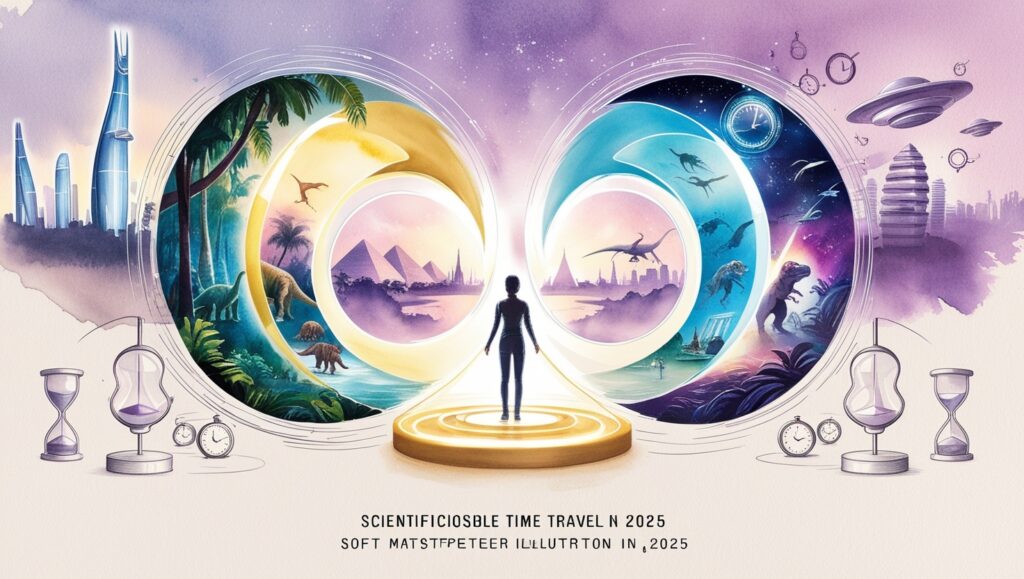
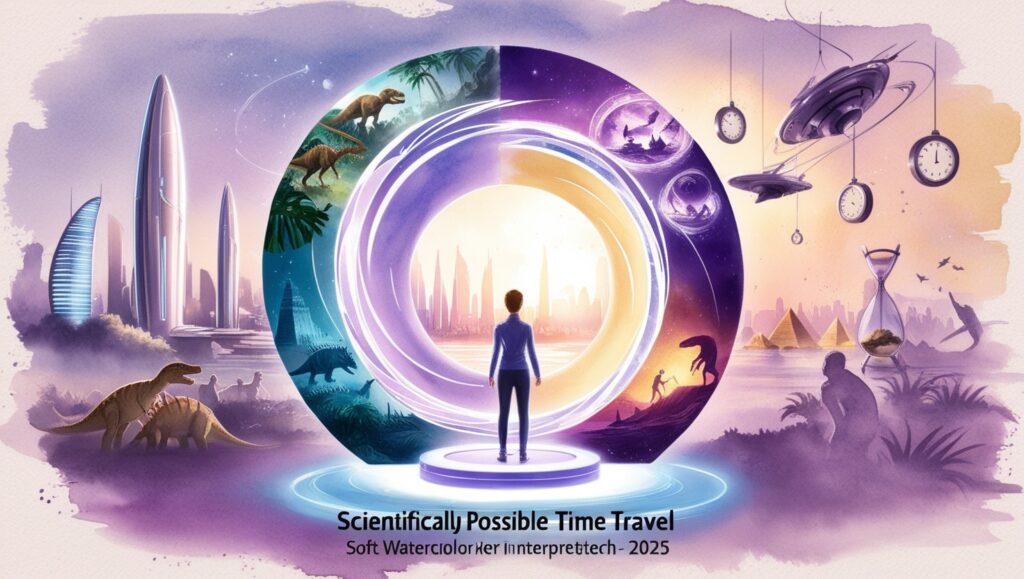

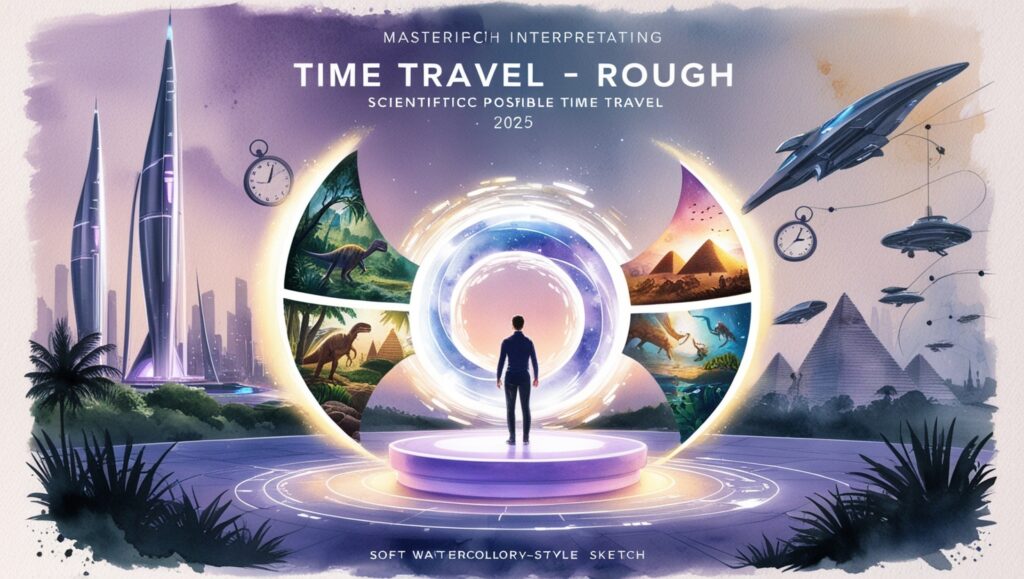
If time travel became scientifically viable in 2025, it would likely involve a breakthrough in one or more of these areas—most probably involving advances in quantum physics, gravity, or exotic forms of energy.
How Might Time Travel Work in Practice?
Assuming we develop the necessary technology, how would time travel be implemented? Would it be a machine? A field? A portal? Here are a few theoretical models:
- Wormhole Generators: A device capable of stabilizing a wormhole and anchoring it to specific points in time.
- Temporal Fields: A controlled field of negative energy that wraps around the user, bending space-time.
- Quantum Entanglement Chronometers: Devices that pair particles across time using entanglement, allowing instant travel or communication across eras.
However, such machines would likely be massive, energy-hungry, and incredibly delicate to operate. Their use might initially be limited to scientific or military applications before becoming accessible to the public.
Impacts on Science and Technology
- Rewriting Physics
If time travel were possible, it would challenge many established ideas in physics. Our understanding of causality (the idea that cause comes before effect) would need to be revised. It might open doors to understanding dark matter, quantum gravity, and the true nature of time itself. - Revolutionizing History and Archeology
Historians and scientists could directly observe past events. Instead of speculating about how ancient civilizations lived or how Earth evolved, we could witness it firsthand. This would eliminate speculation and open a new era of direct historical research. - Time Tourism
A brand-new industry could emerge: time tourism. People might travel back to see dinosaurs, ancient Egypt, or the Moon landing. Specialized agencies could design controlled experiences in past eras, carefully managed to avoid disrupting history. - Scientific Expeditions
Scientists could observe the Big Bang, study extinct species, or test theories about the future of the universe. The potential for gaining knowledge would be limitless.
Social and Ethical Implications
Time travel would not just be a scientific breakthrough—it would be a societal shockwave. The implications would touch every part of human life:
- Changing the Past
If people could alter the past, we would face ethical questions like: Should we stop wars? Prevent genocides? Intervene in personal tragedies? But if the past is changed, the future would also be altered. Would this create new timelines or overwrite the current one? - Alternate Timelines
One theory suggests that changing the past doesn’t affect our timeline—it creates a parallel universe. In that case, time travelers might not affect their own present but spawn new branches of reality. This idea could lead to an entirely new understanding of existence. - Temporal Laws and Regulations
Governments would likely step in quickly. There would need to be international laws regulating the use of time travel—possibly enforced by a global authority to prevent abuse. Unauthorized trips to the past could be considered crimes against humanity or violations of historical integrity. - Identity and Memory
Imagine meeting a version of yourself who made different choices—or learning that your future is already recorded. Time travel would deeply affect our understanding of free will, destiny, and personal identity. It might even reshape how we define what it means to be human. - Inequality of Access
Who gets to use time travel? If the technology is expensive and difficult to control, only the wealthy or powerful might benefit. This could worsen global inequality, giving some people the ability to manipulate history while others are left powerless.
Risks and Dangers
Time travel could bring enormous benefits—but also massive risks.
- Temporal Paradoxes: The grandfather paradox, where a traveler kills their own ancestor, leading to a logical contradiction. These paradoxes might be prevented by nature, or they could cause timeline instability.
- Time Loops: A person could get stuck in a repeating cycle of events, with no escape.
- Timeline Pollution: Repeated interference with the past could accumulate and lead to unpredictable results—historical events becoming chaotic or unstable.
- Chrono-Terrorism: If a malicious actor gained access to time travel, they could attack civilizations in the past or future, hiding their actions by skipping through time.
Public Reaction and Cultural Impact
The public reaction to time travel would be a blend of awe, fear, and curiosity.
- Some might embrace it as the next step in evolution.
- Others might fear the destruction of history and identity.
- Religions might reinterpret their teachings in light of temporal possibilities.
- Art, literature, and entertainment would be transformed. The line between science fiction and reality would blur permanently.
Education, daily life, and our sense of what is “now” would shift dramatically.
What Might the Future Look Like?
In a world where time travel is real, life might change in these ways:
- Schools might include time-travel literacy as a core subject.
- People might have personal time-travel logs alongside birth certificates.
- Families might plan “ancestral visits” the way we plan vacations.
- Global celebrations might take place across multiple time periods simultaneously.
But with all this wonder comes the need for great responsibility. Humanity would be tasked with not only inventing this power, but learning how to use it wisely.
Final Thoughts
If time travel became scientifically possible in 2025, it would be the most transformative moment in human history. It would redefine science, ethics, identity, and our very concept of reality. But with such immense power comes the urgent need for caution, regulation, and understanding.
As we continue to advance toward the unknown, the question may not be if time travel will ever exist—but whether we’ll be ready for it when it does.
How Do Catalysts Speed Up Reactions 2025
https://edgythoughts.com/how-do-catalysts-speed-up-reactions-2025/
Why Is Zero So Powerful in Math 2025
https://edgythoughts.com/why-is-zero-so-powerful-in-math-2025/



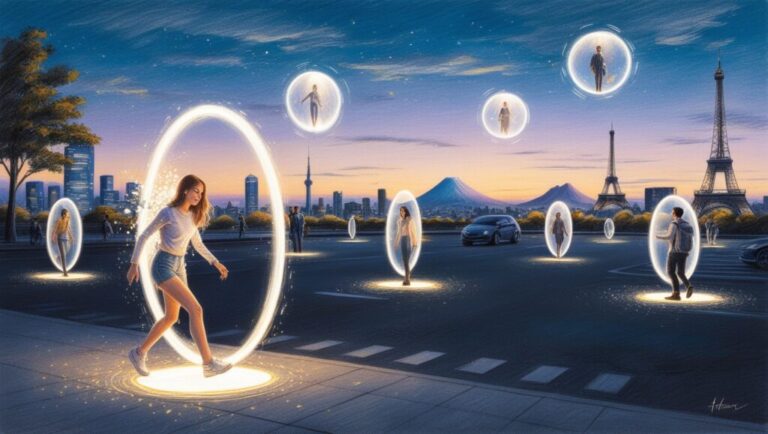
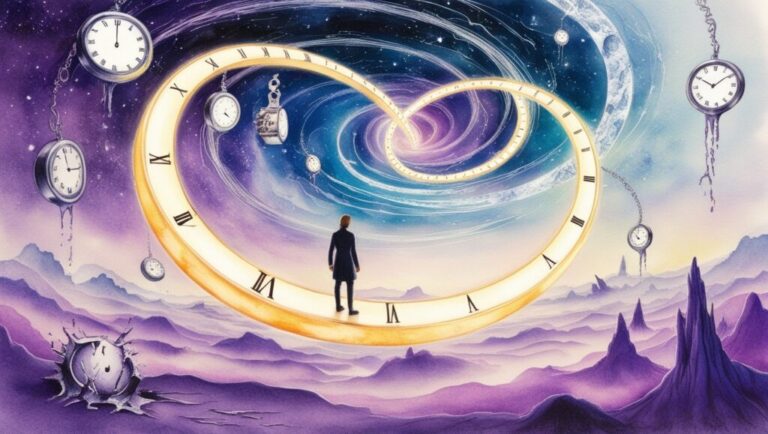

3 Comments